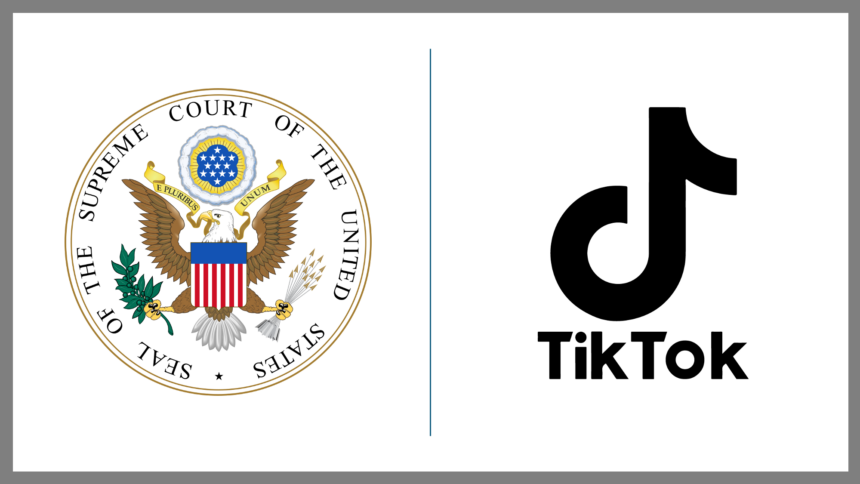TikTok, the popular social media platform, is facing its biggest challenge in the US, with a potential ban looming. The Supreme Court has agreed to hear arguments about whether a law forcing TikTok to divest from its Chinese owners violates the First Amendment. This case could determine TikTok’s future in the US, just as the law is set to take effect. Here’s what’s at stake and why this matters.
What’s Happening & Why This Matters
The Supreme Court will hear arguments on January 10 regarding the controversial law that could ban TikTok unless it separates from its Chinese parent company, ByteDance. This law, part of the larger “Protecting Americans from Foreign Adversary Controlled Applications Act,” has sparked debate across political and legal spheres. The law is set to go into effect just days after the hearing, making this a critical moment for TikTok.
The central question in the case is whether the law violates the First Amendment, which protects free speech. On one side, proponents argue that banning TikTok is necessary to protect Americans from foreign surveillance, especially given concerns about data privacy. The law has bipartisan support, with fears about foreign adversaries exploiting American data. On the other hand, free speech advocates argue that the law is an overreach that shuts down an important platform for communication and expression.
Political and Legal Background
The push to ban TikTok started under the Trump administration, which sought a divestiture of the app from ByteDance. President Biden rescinded that executive order but later approved a similar measure after his administration conducted a thorough investigation. The law was signed into effect in April, but the legality of its implementation is now in question.
During a recent press briefing, White House Press Secretary Karine Jean-Pierre clarified that the law’s intent is not to ban the app entirely but to prevent China from exploiting American users’ data. This explanation adds a layer of complexity, as many argue that the law could overstep government powers by restricting free access to information.
Challenges from Content Creators
The law sparked a backlash from TikTok content creators, many of whom rely on the platform for income and expression. Some creators are expected to present arguments defending the app during the Supreme Court hearing. TikTok has become a popular and influential platform for young people. Its potential ban would affect millions of users and creators who rely on it for their livelihoods.
The Political Backdrop
While the Biden administration supports the law, former President Trump has wavered. Initially, Trump pushed for a TikTok ban but later softened his position, stating that banning TikTok would only benefit his rival, Meta CEO Mark Zuckerberg. Trump has even expressed a “warm spot” for TikTok due to its popularity among younger voters.
This shift in Trump’s stance adds an interesting layer to the case, as his influence on the Department of Justice (DOJ) could impact the law’s enforcement. He could delay its implementation or potentially intervene to stop its enforcement altogether.
TF Summary: What’s Next
The Supreme Court’s decision on January 10 is pivotal for TikTok, its millions of users, and the debate over data privacy and free speech. The outcome may determine the fate of social media regulation in the US, especially concerning foreign-owned tech companies. As the case Is presented, it will influence future legal challenges to similar laws targeting other technologies.
This is the most critical juncture for TikTok in defending its place in the American market. Content creators and users are left hoping for a ruling that preserves their access to one of the most important platforms for digital expression today. The case will set the stage for how the US handles tech regulation.
— Text-to-Speech (TTS) provided by gspeech


